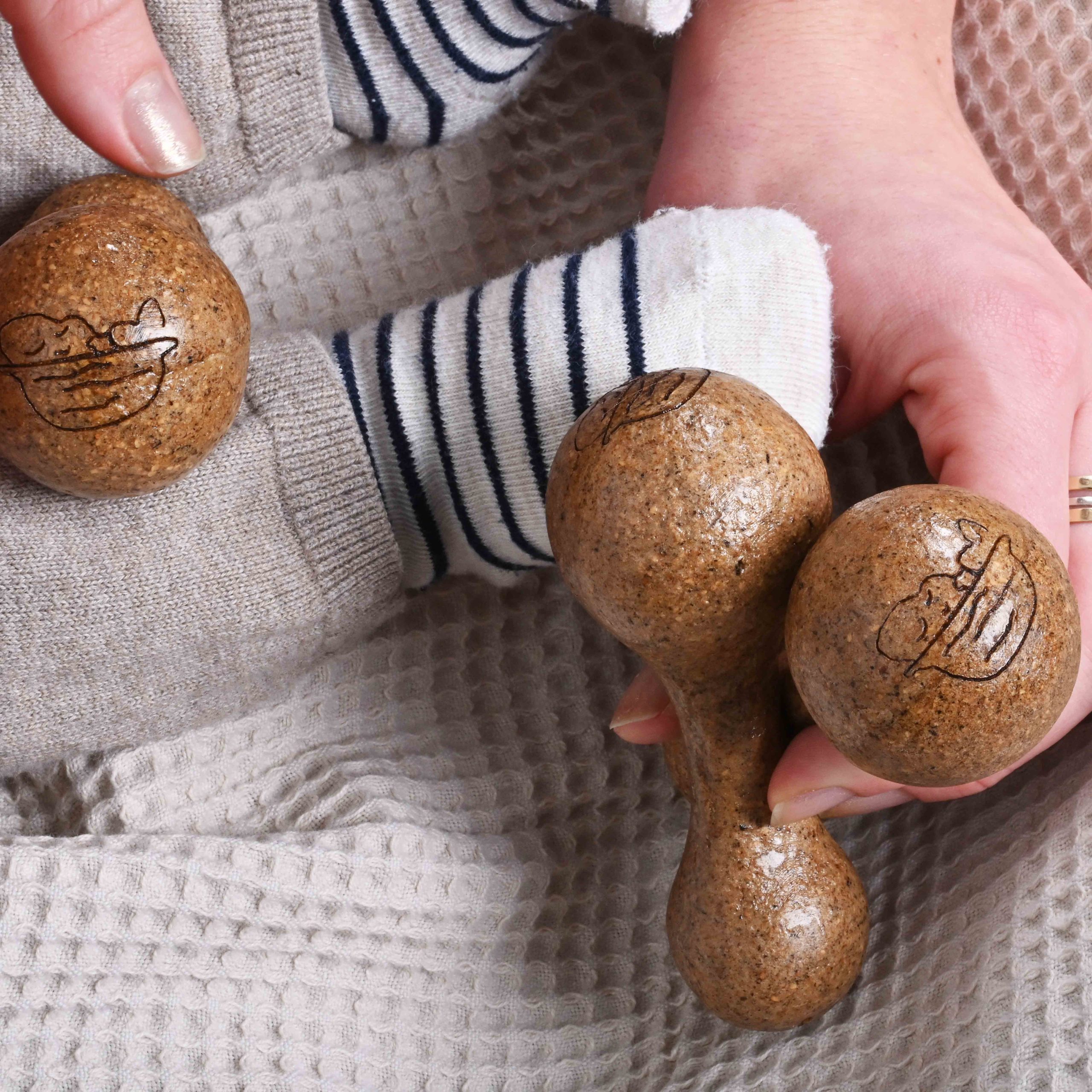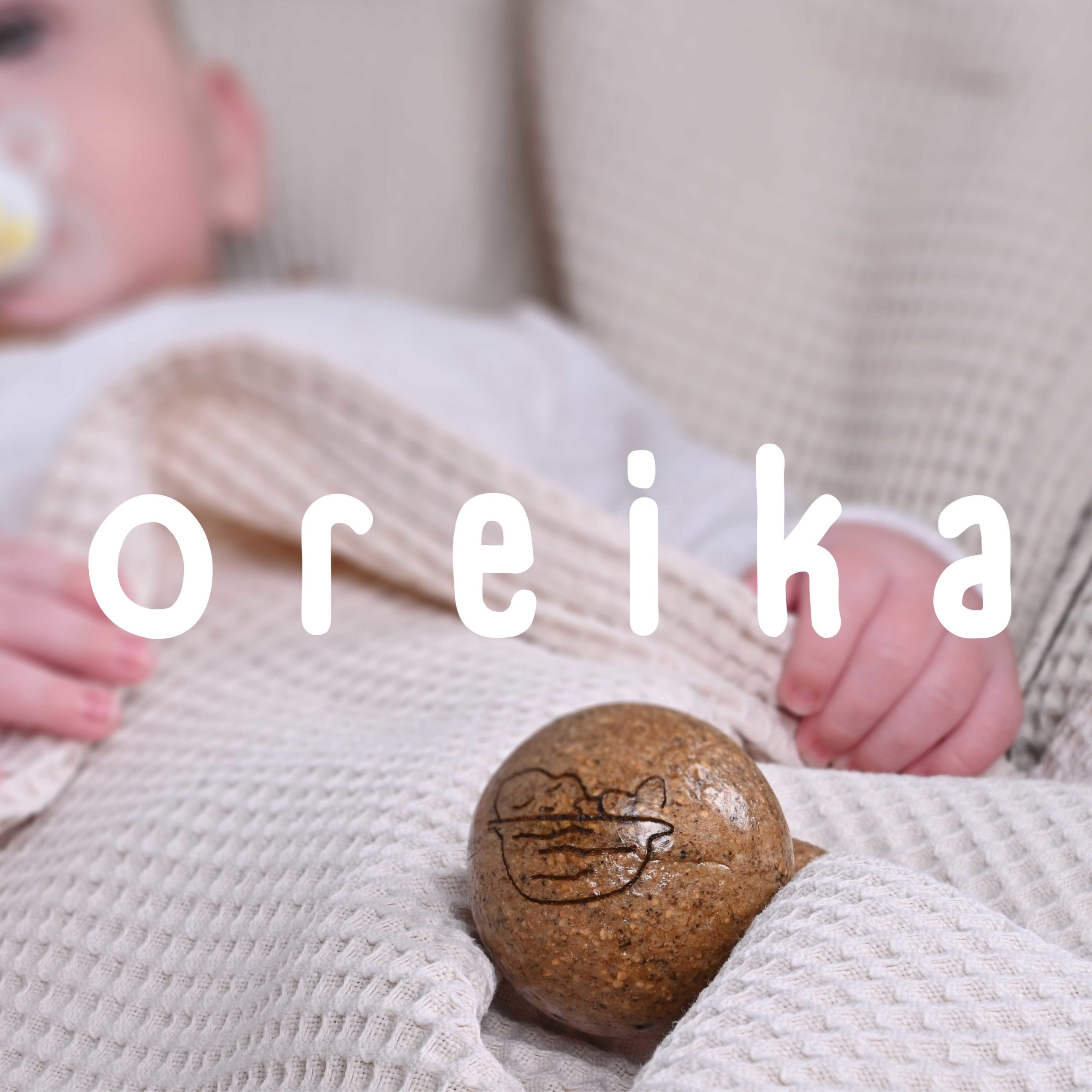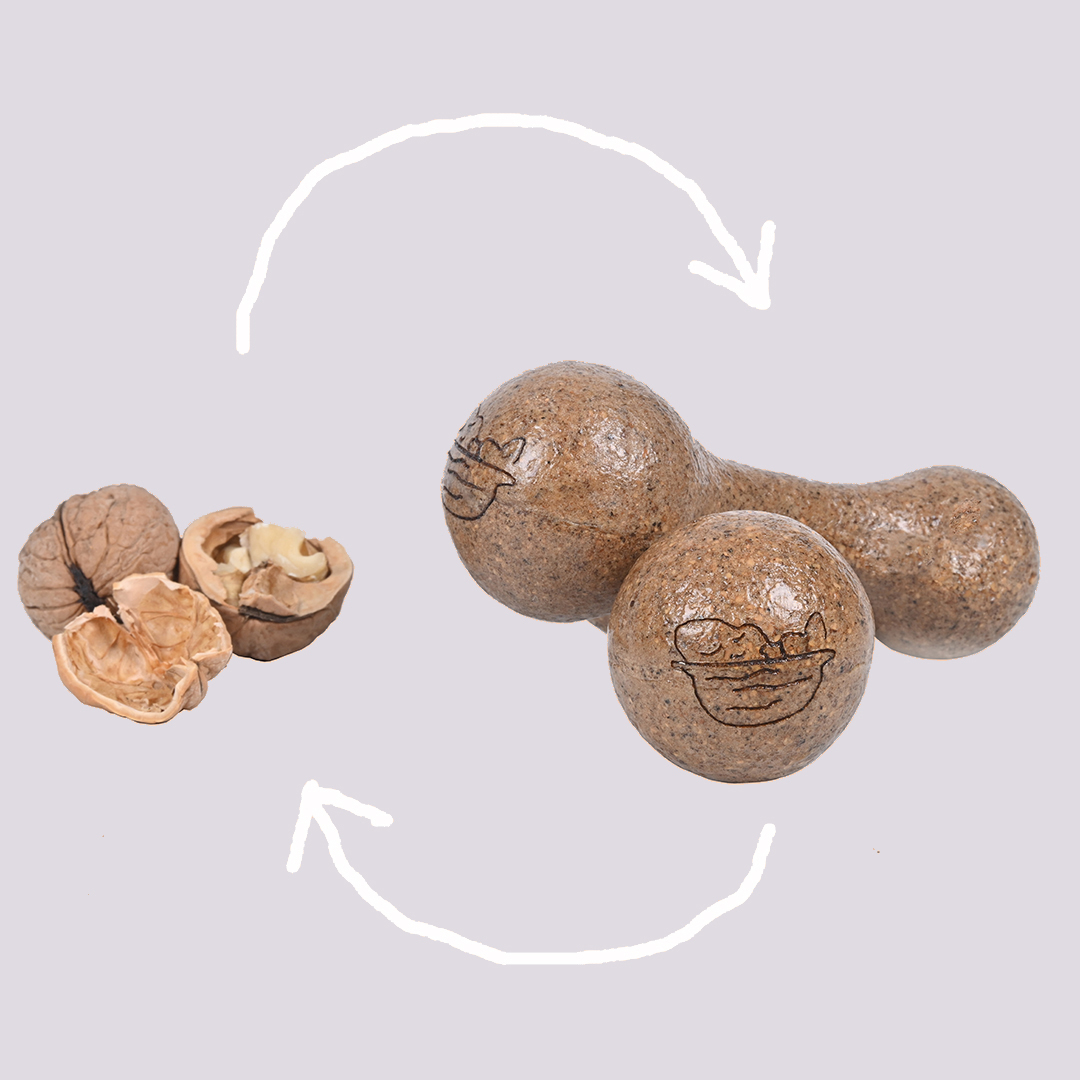Oreika | Lara Baler

Useful information
- Team members
- Country
- —
- Keywords
- -
Detailed Description
Oreika is a fully biodegradable baby rattle, which carries the sounding seeds that can be planted once the toy is outgrown, providing nutrients for the soil and enabling a new tree to grow out of it. Made out of a newly developed biomaterial Nuxit®, using local organic waste source - walnut shells, it aims to educate kids about tactility and materiality, while providing a circular alternative to the plastic intensive baby products industry.
Project Details
- Does your design take social and cultural challenges and human wellbeing into consideration?
From the perspective of social design, the project addresses social inclusion through the activation of vulnerable groups in the collection of raw biowaste. The new biodegradable material called Nuxit® is developed using native Slovenian walnut shells from the Prekmurje region, which is the least developed rural region in the country. Beside stimulating the region to use its local organic waste and giving it a second life through the end products, we are including the scholars with special needs to collect and to participate at the creation process of the primary material.
- Does your design support sustainable production, embodying circular or regenerative design practices?
Did you know that the baby products industry is the most plastic intensive industry in the world? 90% of baby products on the market are made of plastic, only 3,8% of that plastic is recycled and 80% of all baby products end up in a trash. Baby products are ephemeral items that are quickly outgrown - Oreika is challenging the industry with introducing a low-impact educational baby rattle, aiming to reach environmentally responsible consumers.
Oreika is made out of the biodegradable material Nuxit® and can be discarded guilt free or simply planted, providing nutrients for the soil. Nuxit® got included in the Circular Material Library. After your child outgrows the product, you can simply plant it and it will biodegrade completely in 8-9 months in contact with microorganisms in soil. A new life will grow out of clinging seeds in the rattle - as a memory on your child not being a baby any more.
- Does your design use principles of distribution and open source?
The project combines circular economy principles, new technologies and tradition with a commitment to tackling the challenges of disempowerment, social exclusion, and environmental degradation. The primal material to produce Nuxit® biomaterial is collected by the socially excluded groups of scholars with special needs, while the end product is open to be personalized thorough the softwares used.
- Does your design promote awareness of responsible design and consumption?
The Oreika project has an integrative approach to designing. I have developed a new biodegradable material called Nuxit® using native Slovenian walnut shells from the Prekmurje region, addressing social inclusion through the activation of vulnerable groups in the collection of raw biowaste. I have further designed and in collaboration with local professionals manufactured an eco-friendly children's rattle as an alternative to plastic-based industrial toys. The final object rattle Oreika is a fine example of the combination of new technologies in manufacturing and an aesthetically reserved form that relies on the archetypical rattle. It is designed to stimulate a child's early development with its different surface treatments. At the same time, it carries a somewhat romantic idea of the sounding seeds (within the rattle) that can be planted once the toy is outgrown. In order to contribute to the protection and regeneration of natural ecosystem, I included clinging seeds of European indigenous tree species into our products. "Give a gift that gives back" is my slogan and I want to follow it by providing environmentally friendly and costumer health safer solutions. Giving a second life to otherwise wasted local organic material, which can be implemented globally to make a greener future for one of the most poluting plastic industries.
Images


